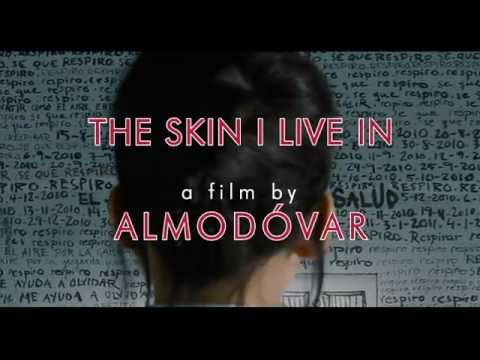Pedro Almodóvar – like his lead character in The Skin I Live In, the virtuoso plastic surgeon Dr. Robert Ledgard – has a masterful lightness of touch. He moves his camera as if delicately wielding a scalpel, yet he is certainly not the squeamish type. Not one to shy away from controversial subject matter, Almodóvar’s long-awaited reunion with Antonio Banderas demonstrates the veteran director’s edge remains unblunted after 18 films. If anything, The Skin I Live In is perhaps the most shocking and provocative story he has attempted to date.
It is a strange Frankenstein tale, based on French novelist Thierry Jonquet’s book Tarantula. It is very difficult to give any outline of the plot without doing the film a disservice, and undermining much of the narrative pleasure; the pacing is so excellent and the intricately sutured plot so carefully unpicked, revealing twist upon twist, before the tourniquet is finally whipped away, that the audience gasps to recover its breath after the final cut.
Very basically, then, it is the story of a disturbed doctor, preeminent in his field, who shocks the surgical community by proposing the use of transgenic treatments from animals to repair damaged skin. Meanwhile, in his labyrinthine Toledan villa, he experiments on a young woman, Vera, in his private laboratory. She is dressed from head to toe in a lightweight body suit, protecting her artificially perfect skin, and seems a willing captive, but the doctor keeps a wary vigilance over her with a system of CCTV cameras deployed throughout the house. From here Almodóvar launches into a brilliantly, brutally taut thriller.
The casting of Antonio Banderas as the lead, the first time he has worked with the director in 21 years, is the obvious talking point. And it is a great piece of casting. Banderas plays Dr. Ledgard, the brilliant but disturbed plastic surgeon making staggering breakthroughs in the field of genetically enhanced skin, specializing in helping those who have suffered facial disfigurement. As the plot develops, we discover he has suffered intense trauma himself, and his steely, graceful demeanour hides a deeper malaise. Banderas, looking suave and refined at 50, is able to play the character with the slick, controlled charm befitting a master technician. His big hazel eyes and romantic face, however, belie an inner turmoil and a twisted web of strange desires.
Banderas’s maturity (both physical and artistic) leads to a very different character from those the actor and director had such success with in the 80s. In Matador (1986), Law of Desire (1987), Women on the Verge of a Nervous Breakdown (1988) and Tie Me Up! Tie Me Down! (1990), the Banderas characters were always ingénues who never seemed fully responsible for his actions, however malicious. They were a whirl of emotions, and one sensed that Almodóvar saw a romantic innocence behind Banderas’s handsome young features, an innocence that was at odds with the adult world of love and desire conspiring around him. Banderas was there to demonstrate that love and sex were power games, and those who didn’t fully understand the rules were prone to suffer misfortune and hardship. His characters were also quite often crazy.
Here the character has been refined and matured; he is contained within a steel exterior which is difficult to penetrate, but the vulnerability of old occasionally flickers through, and there is more than a flash of insanity lurking behind the steady gaze. It is a quite extraordinary performance, and one you feel only Almodóvar could have brought out of Banderas. Ledgard has a refined cruelty and a dark and self-relying intelligence that draws the audience, and his young captive Vera, in, before the mask slips and we see him for the monster he really is.
The film itself is a distillation of Almodóvar’s previous work. All the usual themes are present – voyeurism, extreme sexual dynamics, bizarre Oedipal relationships (at one point Ledgard’s mother cries "I have insanity in my entrails!"), celebration of Spanish culture (here, the architecture of Toledo), transvestism, doppelgangers, the impossibility of love etc. – but here they somehow seem more subtle, to call less attention to themselves. Technically and aesthetically, it is also less radical but more complete than much of his earlier work. For example, the bursting pastel palette of his 90s comedies has been toned down to a metallic gloss, only a vibrant blood red remaining in the mix and the sweeping top shots used when the plot shifts into top gear are conventional Hitchcockian thriller fare, but in Almodóvar’s hands they become majestic.
The real brilliance of The Skin I Live In is Almodóvar’s ability to represent shocking, morally repugnant subject matter in an engaging, accessible way, whilst always keeping the audience gripped. It is the work of a mature artist. He is not telling this tale purely to be controversial; he sees beauty in the intricate moral dilemma at the film’s centre. There are flashes of black humour underscored by emotional sincerity, and he owes much to Banderas’s performance for this. It is the work of a masterful director who, along with Volver and Broken Embraces, is now showing himself to be a mature artist, rather than an excellently entertaining agent provocateur. And still without ever quite losing the glint in the eye of an enfant terrible.
Almodóvar really puts the audience under the knife with his new film, probing and prodding them, often viscerally, but you never feel for a moment he is going to lose the patient. It is this strange juxtaposition – the risk of outrage, of a cut too deep combined with trust in a consummate professional’s judgment – that makes The Skin I Live In such a tense, rewarding experience.




